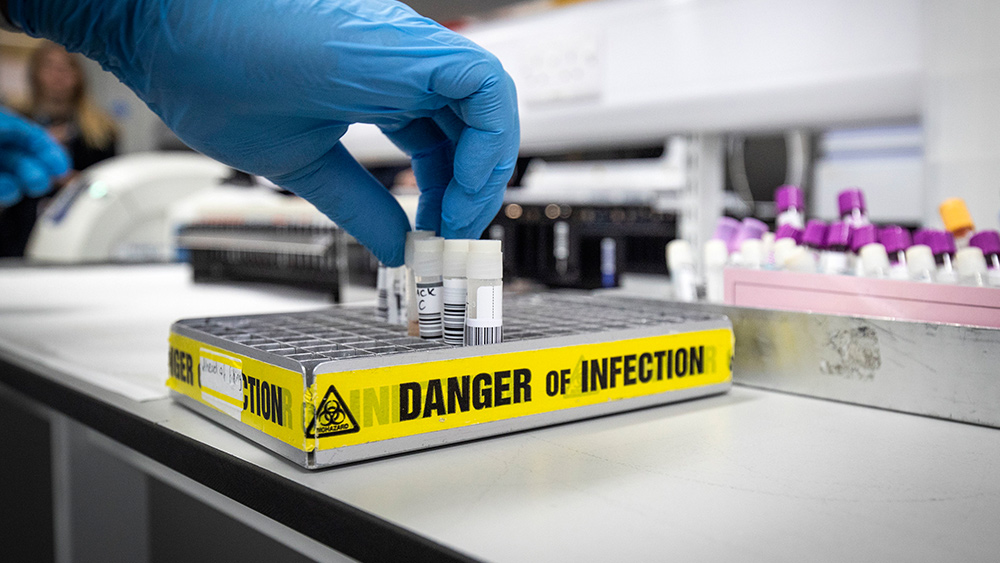
While natural immunity provides the greatest protection against future viral strains, there are no guarantees, and much of one’s success in dealing with an inevitable infection depends on the health of the individual’s various immune functions, their nutrient absorption, and the type of treatments they pursue.
One thing is for sure: after three years of covid-19 vaccinations and multiple booster shots, COVID-19 is more likely to take advantage of the “vaccinated” population. The vaccinated are more likely to succumb to COVID-19 and future COVID infections, and studies now show that these infections can cause damage to the bladder, prostate, and urinary tract.
To make matters worse, studies also show that the vaccine itself is linked to an increase in urinary tract infections, overactive bladder, incontinence, and gross hematuria (blood in the urine).
COVID-19, exacerbated by vaccination, attacks ACE2 receptors in the testes and prostate, damaging urinary tract
A SARS-CoV-2 infection, which is most likely preceded by a COVID-19 vaccine, can cause damage to the urinary tract on its own. The viral infection can cause inflammation in the genito-urological area, causing an enlarged prostate. An enlarged prostate impedes the flow of urine because the urethra passes through the prostate. The narrowing of the urethra makes the individual more vulnerable to urinary hesitation, retention, and urinary tract infections.
In an October 2023 study published in the Journal of Internal Medicine, researchers from Hong Kong explain that SARS-CoV-2 viruses may be binding to ACE-2 and TMPRSS2 receptors in the testes and prostate, causing damage. Male and female reproductive organs have a relatively high expression level of ACE-2 receptors, making them potentially more vulnerable to damage caused by SARS-CoV-2 infection.
"Male patients infected with SARS-CoV-2 are more likely to have deterioration of LUTS (lower urinary tract symptoms). This association is not without biological plausibility," the authors concluded. Receptors for SARS-CoV-2 and its superficial spike protein are abundant in the prostate, this therefore "renders it a target for SARS-CoV-2, leading to inflammation and therefore these outcomes of interest," the authors added.
The Hong Kong study found that men who had a COVID-19 infection were at greater risk of having an enlarged prostate and faced a greater chance of having urinary tract infections, urine retention, and hematuria. Because vaccination makes a person more vulnerable to infection, the vaccination essentially causes and/or exacerbates inflammation of the prostate and urinary tract, making a person sicker in the long haul.
Prostate and UTI patients experience worse symptoms after COVID vaccination
Patients who already had an underlying problem with their prostate experienced a worsening of lower urinary tract symptoms after vaccination. A May 2022 study published in the Journal of Clinical Medicine warned doctors to monitor patients with lower urinary tract symptoms after COVID-19 vaccination -- especially patients who already suffered from overactive bladder. The study authors advise vaccinated patients to seek further medical assistance if their urinary tract symptoms worsened after vaccination.
Another study finds a direct link between the vaccine and the damage in the urinary tract. The study shows that urinary proteins responsible for immune response are altered before and after COVID-19 vaccination.
Biodistribution studies conducted on the vaccinated have shown that the spike protein transcribed by the mRNA vaccines does not deteriorate; instead, it tends to concentrate in the ovaries and testes. Some studies show that these spike proteins from the vaccine persist for many months to years, contributing to long term vaccine damage.
Sources include:
Please contact us for more information.





















